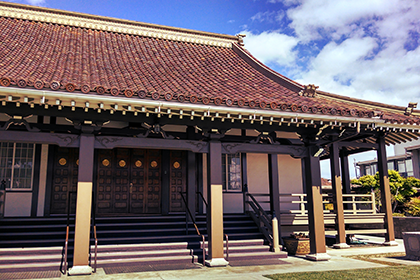For me, it began with yoga. A new studio opened in my hometown, I wandered in out of curiosity and walked out with an interview to work in their daycare. I started doing yoga and, a year and a half later, my primary instructor handed me a book called Dharma Punx by Noah Levine.
If you haven’t seen it, the book’s cover is a photograph of the author’s tattoo-covered hands in prayer position against a stark black background. I was intrigued. The story details Noah’s young adult years in Santa Cruz, CA, his descent into drug use and eventual arrest, and his turnaround following a poignant conversation he had with his meditation-teacher father, Stephen Levine. After his release from prison, Noah began attending classes and sitting retreats at Spirit Rock Meditation Center, a center that was just a few hours away from where I live. Within a year of reading Dharma Punx, I attended my first weeklong meditation retreat, not realizing it would be a silent meditation retreat—as in silent all. day. long.
On the first evening, I was sitting in the dining hall, eating dinner after settling into my room, and the man across from me commented to the woman beside him, “I can’t believe people are talking right now.”
The woman replied, “Oh don’t worry, tomorrow you ‘ll be able to hear a pin drop in here.”
“What?” I blurted out. “Is this a silent-silent retreat, as in no talking? Not just during meditation?”
They both looked at me quizzically. It didn’t help that I was probably the youngest person in the room by a good 20+ years on average. They explained the retreat’s parameters: no talking on site, not even in the residential halls, and reading and writing are also discouraged. Gulp.
And thus, I entered the silence for the first time. I’ve since attended two additional weeklong retreats and listened to many, many dharma talks. I’m still working to make time for meditation every day. These experiences with Buddhist teachings (dharma) have significantly shaped my perception of and approach to life.
In a dharma talk I listened to recently, Joseph Goldstein summed up the dharma thusly: everything is connected (non-self), nothing lasts (impermanence), you are not alone (suffering). It is our suffering that helps us to feel compassion for one another. The first of the Four Noble Truths is that dukkha (suffering) exists, the second is that it is caused by craving or clinging. The third is that suffering abates as craving is relinquished. The final of the Four Noble Truths is acceptance that the Eightfold Path leads to the cessation of suffering.
Here are a few concepts that have particularly stood out to me over the years:
- Near Enemies and Far Enemies: the Four Brahma-viharas (Source)
- In Buddhism, there are four desirable states, or brahma viharas. Each of these has both a near enemy and a far enemy. The far enemy is easy to spot, while the near enemy can masquerade as the desirable quality.
- Metta (loving kindness): near enemy is attachment; far enemy is hatred
- Karuna (compassion): near enemy is pity; far enemy is cruelty
- Mudita (sympathetic joy): near enemy is comparison, insincerity; far enemy is envy
- Upekkha (equanimity): near enemy is indifference; far enemy is anxiety, greed
- Five Daily Recollections (Source)
- I am of the nature to grow old; I cannot avoid aging.
- I am of the nature to become ill or injured; I cannot avoid illness or injury.
- I am of the nature to die; I cannot avoid death.
- All that is mine, dear and delightful, will change and vanish.
- I am the owner of my actions;
I am born of my actions;
I am related to my actions;
I am supported by my actions;
Any thoughts, words or deeds I do, good or evil, those I will inherit.
- Enlightenment takes effort (samma-vayama).
Don’t strain or judge yourself harshly.
If you’re interested in exploring Buddhism, here are my suggestions:
- Look up the nearest meditation center or Buddhist temple. Most centers have a variety of classes, daylong retreats, and overnight retreats. Do your research and delve into the background of each center—there are big differences in approach on every level, from the branch of Buddhism on which the center bases its teaches, to the daily schedule of meals and meditation.
- Visit the library. The Dalai Lama is a great writer. So are Thich Naht Hahn and Pema Chodron. There are many, many excellent books on Buddhism.
- Listen to dharma talks. DharmaSeed.org has literally thousands of dharma talks that you can stream for free. You can search by key word to match the subject to your current feeling (e.g. stress, anger, frustration, calmness, love) or search by teacher. They even have a free app for mobile device streaming.
- Check out a documentary on Netflix. The Buddha: The Story of Siddhartha is one of my favorites.

Photo by Sara Slattery